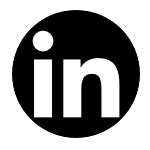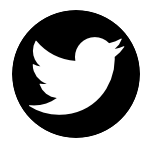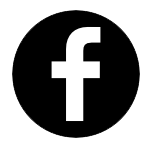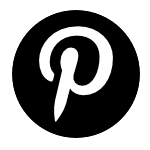|
(This post is based on 3 of the slides from a presentation I recently gave at O’Reilly's “Tools of Change in Publishing” conference. We'll be posting all of the presentation there shortly.) Throughout 2010 it was clear that ebooks were growing in popularity. By the end of September 2010, the below chart shows the sales history for ebooks (in dollars) we were looking at here across all of Sourcebooks: As you can see (and this is Sourcebooks data only) ebooks were growing pretty steadily every month. We all knew the holiday season would propel this upswing further. People would be given empty devices as gifts for the holidays and they'd begin filling them, so I expected to see December and January ebook numbers that were a significant increase. But would the upswing be a nice new plateau or would it suggest a legitimate "tip"? Well, take a look: That's an extraordinary increase in just two months. Current ebook sales put all the previous sales figures into striking perspective – what we believed was remarkable growth for all of 2010 was nothing in comparison to what was actually possible. And (as people who are familiar with what we've been doing at Sourcebooks know) we've done a tremendous amount of work to obtain these results. Particularly striking is that: It's obviously too early to tell but if the December 2010 and January 2011 numbers hold their level, it seems clear that this may well be a much faster transformation than we anticipated.
At Digital Book World - only a month ago - there seemed to be consensus that the ebook tipping point would occur around 2014. That seems too slow to me now. Based on what we're seeing in our current data, I think we may well be at the tipping point and that certainly has a lot of implications. I suspect that we're going to see some dramatic reassessment when publishers look at their numbers at the end of first quarter, 2011. And for certain types of books, ebook units this year may be more than 50% of units sold (but more on that in a future Sourcebooks Next post). Dominique I thought you might be interested in this interview I gave at DBW '11 (a few weeks back), where I discuss in more detail the latest insights we've gained on the transformation of the book industry and the strategies we're employing to move forward. Some of what I talk about: • A few lessons learned in connecting voice/authors to readers • The strength of independent book publishers...could that be an advantage right now? • Conceptualizing new digital ideas in partnership with authors, for example, the Fiske Interactive College Guide (which is today New and Noteworthy at the App Store!!) • The problems of discovering new books on the internet and upcoming discovery experiments • The search for new business models As always, I love having this conversation!
How are you experiencing the changes taking place in book publishing today? What do you think makes it not publishing as usual? Let me know what you think, Dominique
For the last 18 months we've been working on developing a digital roadmap for The Fiske Guide to Colleges, which is the #1 bestselling college guide in the country.
It's been interesting on two fronts. The first is the actual roadmap, determining what the digital products should be. What would enhance the experience? What would provide further support for parents, students and educators going through the college search process? The second is about watching ourselves going through the process. What is the role of a traditional book publisher in this kind of development? When do we stop being a traditional book publisher? And that's interesting because it's all new ground. There aren't good models here. It's a new world for us all. So today we get to introduce the first part of that roadmap, The Fiske Interactive College Guide iPad app, now live on the App Store! http://itunes.apple.com/us/app/fiske-interactive-college/id418350915?mt=8 We've also put a quick video together to showcase some of the functionality. I urge you to check it out (I admit being in love with this video):
To put the app in further context, read what Jacques Steinberg, the Education Editor of the New York Times, has to say. He just wrote about Fiske Interactive in The Choice: http://thechoice.blogs.nytimes.com/2011/02/11/fiske/
There's a lot more to say about Fiske Interactive. And the marketing for all of this development is extensive. But today I just wanted to share this app that (I think) takes a step forward in reference publishing. Let me know what you think, Dominique Are we reading more because of ebooks? How is reading changing because of ebooks? This weekend I posted a Twitter poll asking ebook readers for their impression of any changes that were occurring in their reading habits since they started reading ebooks. Obviously twit polling is not a scientifically rigorous methodology. We know that self-reported behavior differs in some important ways from actual behavior (often making us look better in our own eyes for example), and I'd also suggest the respondents here lean to heavy users. But I thought it was interesting to at least see what people believed about what they were doing. Of the more than 200 people who answered the poll: • 80% believe that they're reading either somewhat or much more than before. (I reclassified some of the other category when it was clear the person was reading more) • 14% believe that they're reading about the same • And 4% believe that they're reading less (either much less or somewhat less) Here's what the poll looks like: (By the way, that 80% was consistent right from the start of the poll.) What also interested me were the comments on twitter, LinkedIn and left in the "other" category of the poll. We had 211 poll respondents, but only 7 left comments and only 8 commented on LinkedIn so we should be careful not to over-generalize:
"I am reading more cursory." ". . .going towards flicking through things and multitasking many things instead of committing to one thing." "'dark side' of e-books. . .I'm sacrificing ever more depth for breadth. . ." But those comments were not universal: "I read the same way -- I'm interested in the language and not the ink and paper. I read more because it's more convenient to have a large number of books with me always." "Ahh, now my experience is different. Perhaps that is because I have a Kindle, not an iPad - so there is less temptation to do other things?" "My reading experience hasn't really changed that much, I tend to just plough on through the book regardless of the format....until I have finished what I am reading." How widespread is any or all of that? We don't know. Since reading ebooks is relatively new for most people, we are seeing only the early stages of changes that may occur in our reading habits. And what happens as people become more familiar with and skilled at new reading habits? Time will tell. So here's what I seem to be doing. I'm finding that I'm buying significantly more books, I'd estimate as much as 50% more. I'm also starting and dropping more books, which is completely new behavior for me (I used to have to finish a book before I could start another and I would always finish a book even if I didn't like it). Old habits seem to be gone. I too believe that I'm reading a lot more. And I seem to get more attached. So I find an author or series I like, I buy all of their books—right now— and then devour them in a weekend. Part of that has to do with availability on every device, so while I'm waiting in line at the airport I just keep reading on my iPhone. That sync function seems to allow for greater continuity of experience. What about you? Have you seen a change in your own behavior since you started reading ebooks? Please feel free to comment below and tell us what you're experiencing. Dominique In talking to ebook users, there seem to be some themes developing on this subject. I thought we'd get a quick read with a not very scientific poll and we could all discuss. So if you read ebooks, have you noticed changes in the way you read? Here's a quick poll. If you want to talk about what you're noticing, please add to the comments below.
Thanks, Dominique Kirkus reviewed the enhanced e-book of Let Every Nation Know: John F. Kennedy in His Own Words by Robert Dallek and Terry Golway in the publication’s upcoming February 15 issue.
"A well-made enhanced e-book that collects some 30 speeches by John F. Kennedy from January 1960 until the day before his assassination in November 1963. Readable and easily navigated and bookmarked—a first-rate introduction to the Kennedy presidency." 5+ Things We Learned and Are Doing Differently Now After an engaging, inspiring, and utterly packed Digital Book World Conference & Expo (DBW) last week, I started to pull together some of the more practical implications of the DBW and Publishers Launch Conferences for Sourcebooks:
1. Marketing: Integration & Better Data The discussions on these subjects were outstanding and really identified several areas that we're moving forward on.
2. Key Performance Indicators (KPIs) & Metrics Lots of important discussion and thinking around data and metrics. Sourcebooks has a management quarterly next week to review performance and plans. This will be focused on key performance indicators (KPIs) and metrics. Again, much to think about and push forward. 3. New Ventures DBW was a great show for creating new opportunities. We met four new companies (with interesting business proposals or models) with whom we expect to be doing business in 2012. There’s some new thinking in unexpected areas. 4. Partners It was wonderful to have meetings with many of our current partners and to discuss expanding our relationships. This is a rapidly changing space and everyone was abuzz with new work and new ideas in both the digital and physical book marketplace. Five of our partners have some big things brewing, and yes, we’re absolutely going to be participating. 5. Illustrated eBooks Unbelievably, I saw two new opportunities at the illustrated book panel. Let’s see if I can convince anyone else in my organization to try these out. This is obviously not all:
We thank you for the warm reception to our new Agile Publishing Model and our partnership with futurist David Houle. And a special thank you to David Nussbaum, Mike Shatzkin, Michael Cader, Jess Johns, Matt Mullin and all of the DigitalBookWorld and Publishers Launch Conferences team for their hard work and commitment! The thing that warmed my heart the most was the level of conversation and engagement between lots of different industry members. Some conversations were difficult. Sure. But most were productive and engaging. I hope others will share their learnings, thinking and/or questions. Dominique |
Welcome to the Sourcebooks Books and Buzz Blog!
Click a category below, search for a specific author, book, or topic. Categories for each of our imprints are as follows: Categories
All
Archives
April 2020
|
About |
Authors |
© COPYRIGHT 2024. ALL RIGHTS RESERVED.

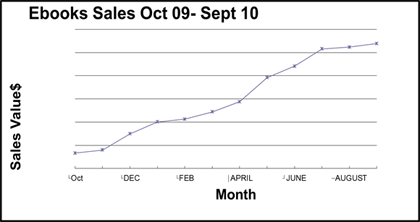
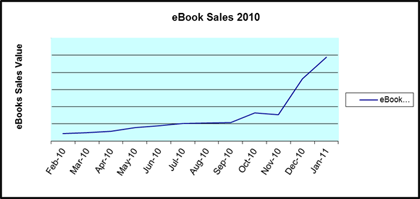
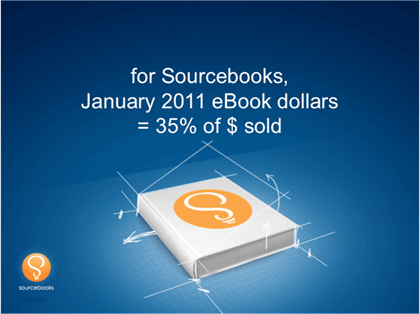
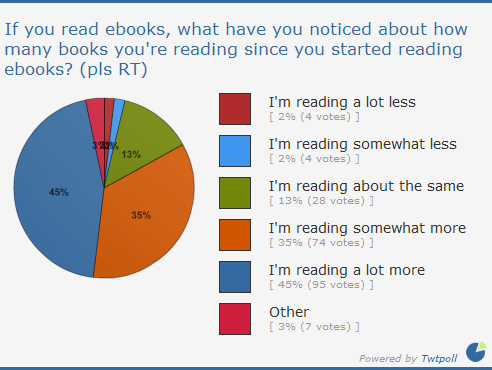
 RSS Feed
RSS Feed
